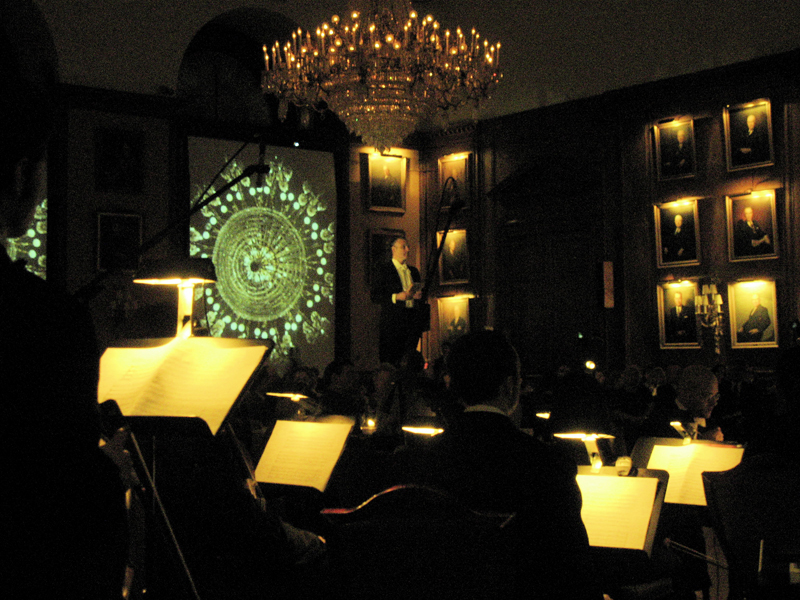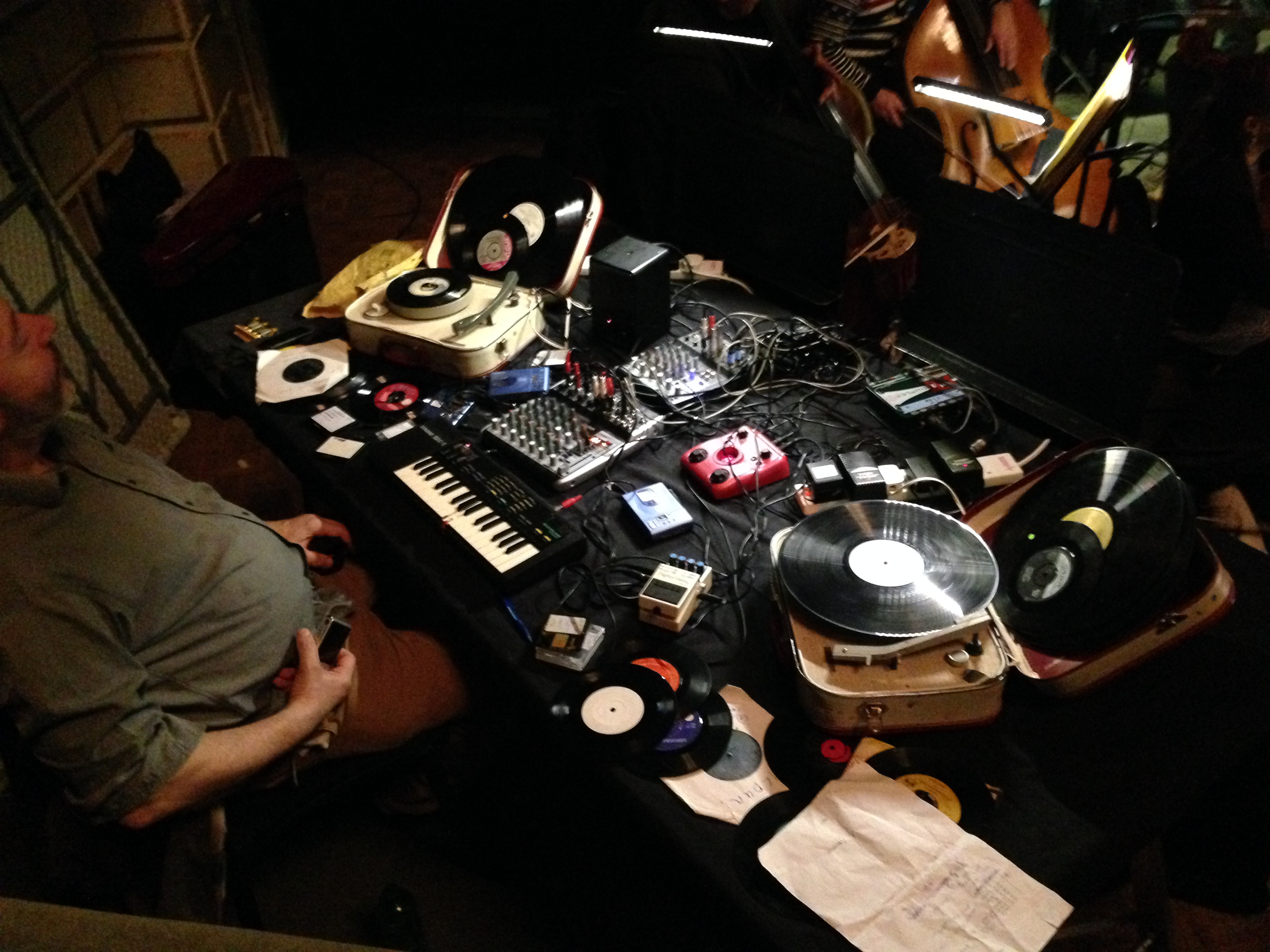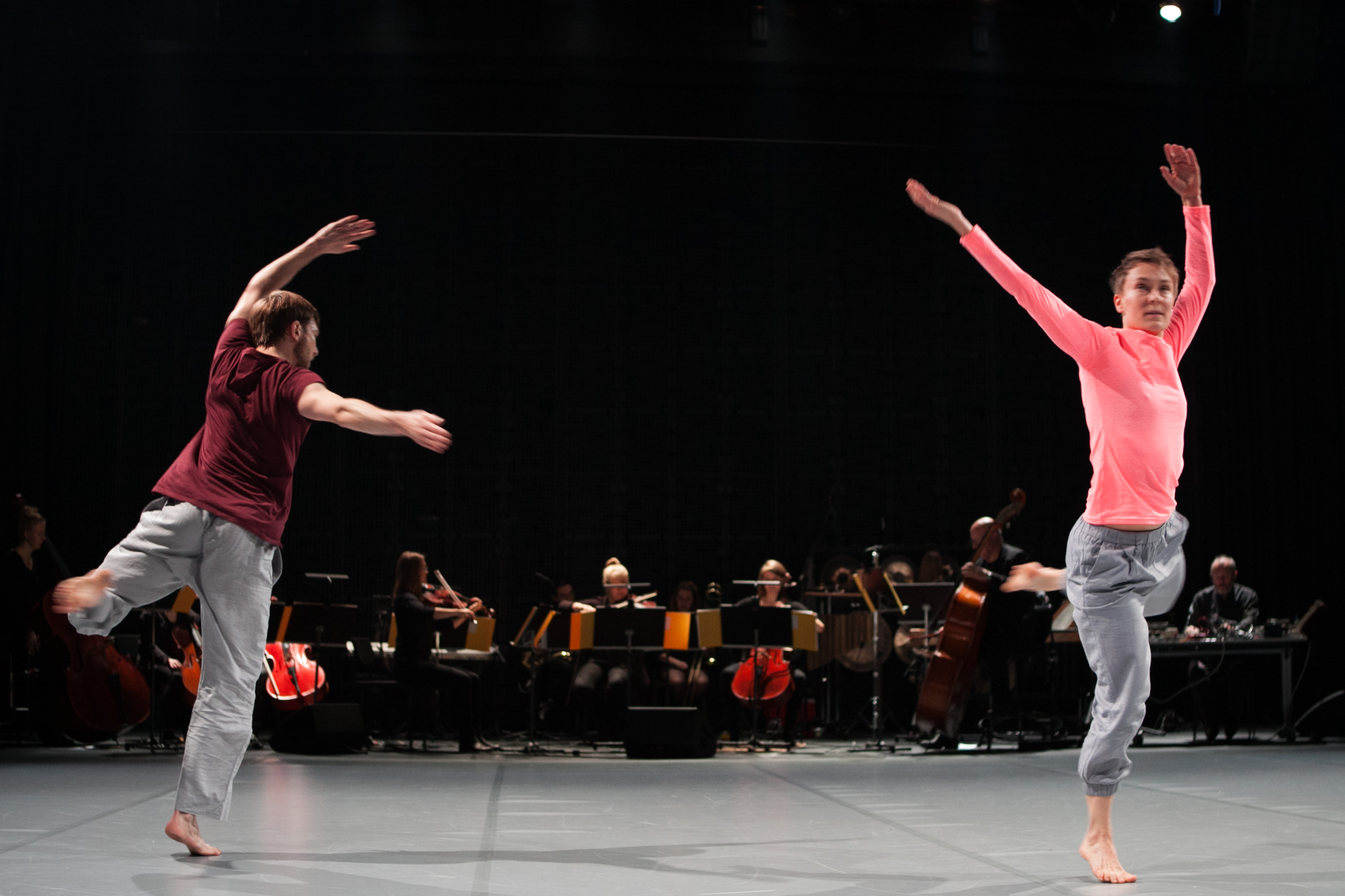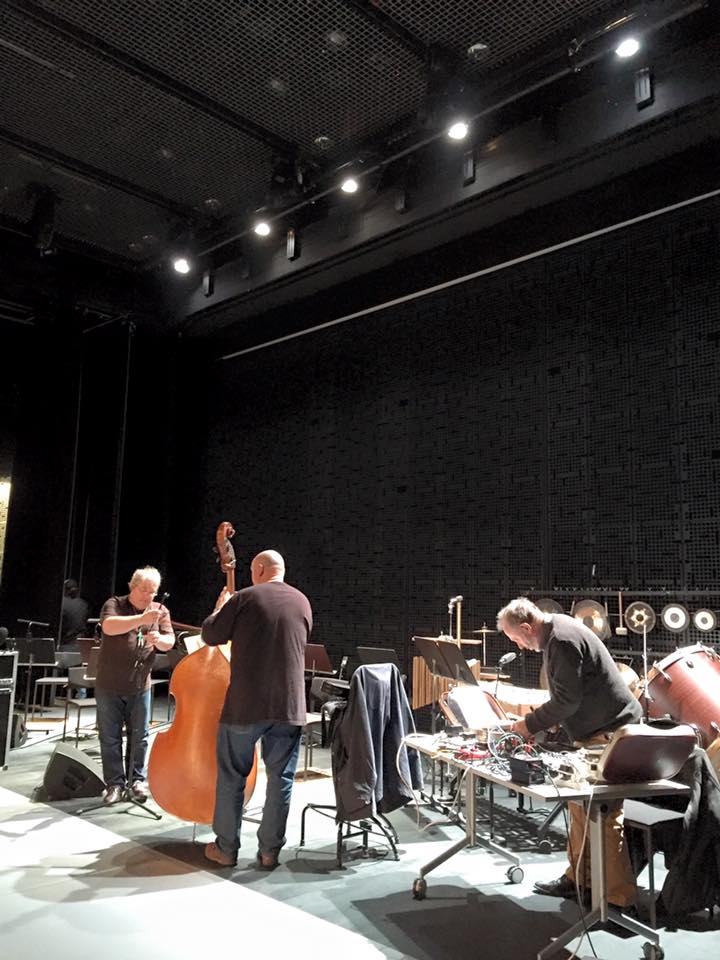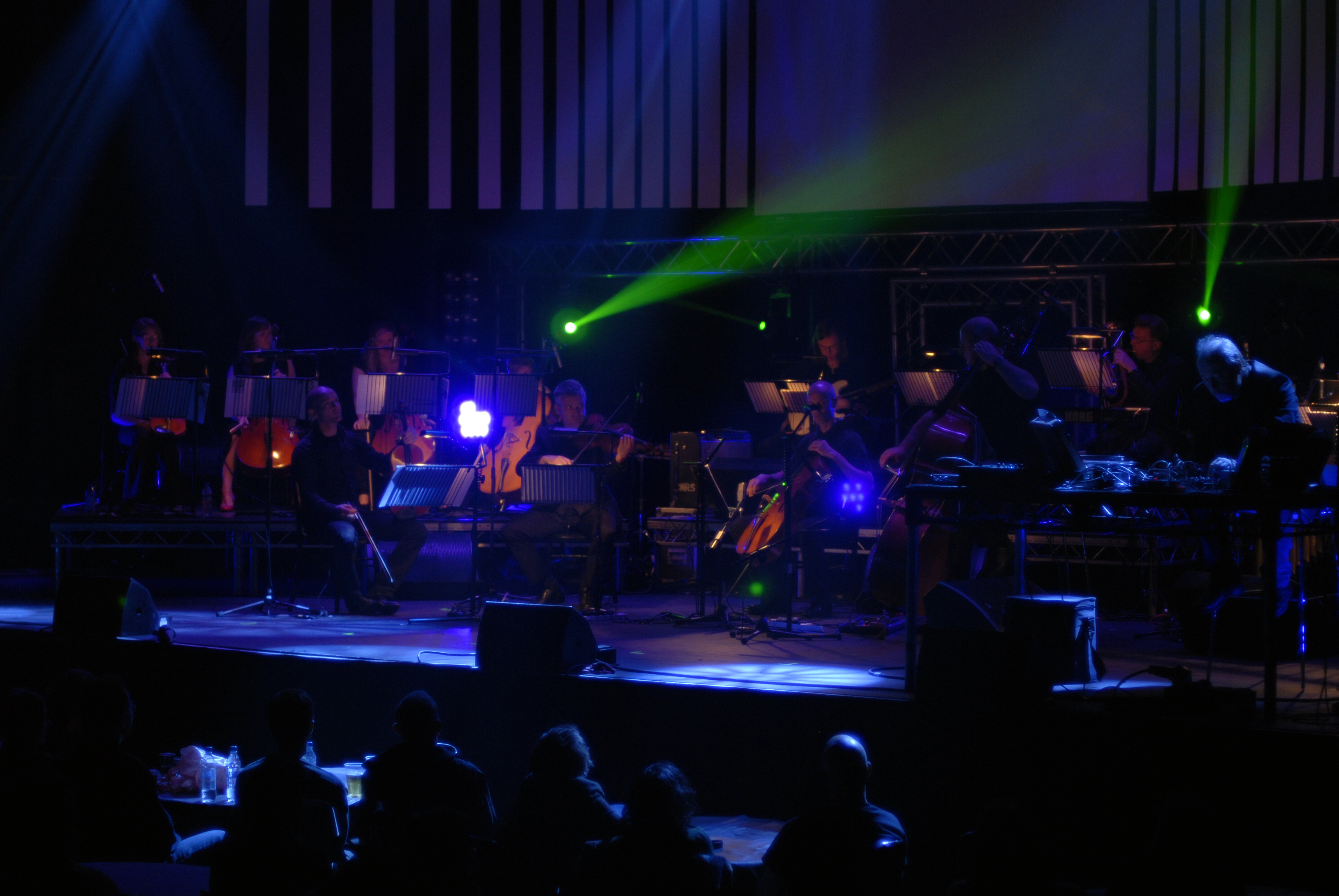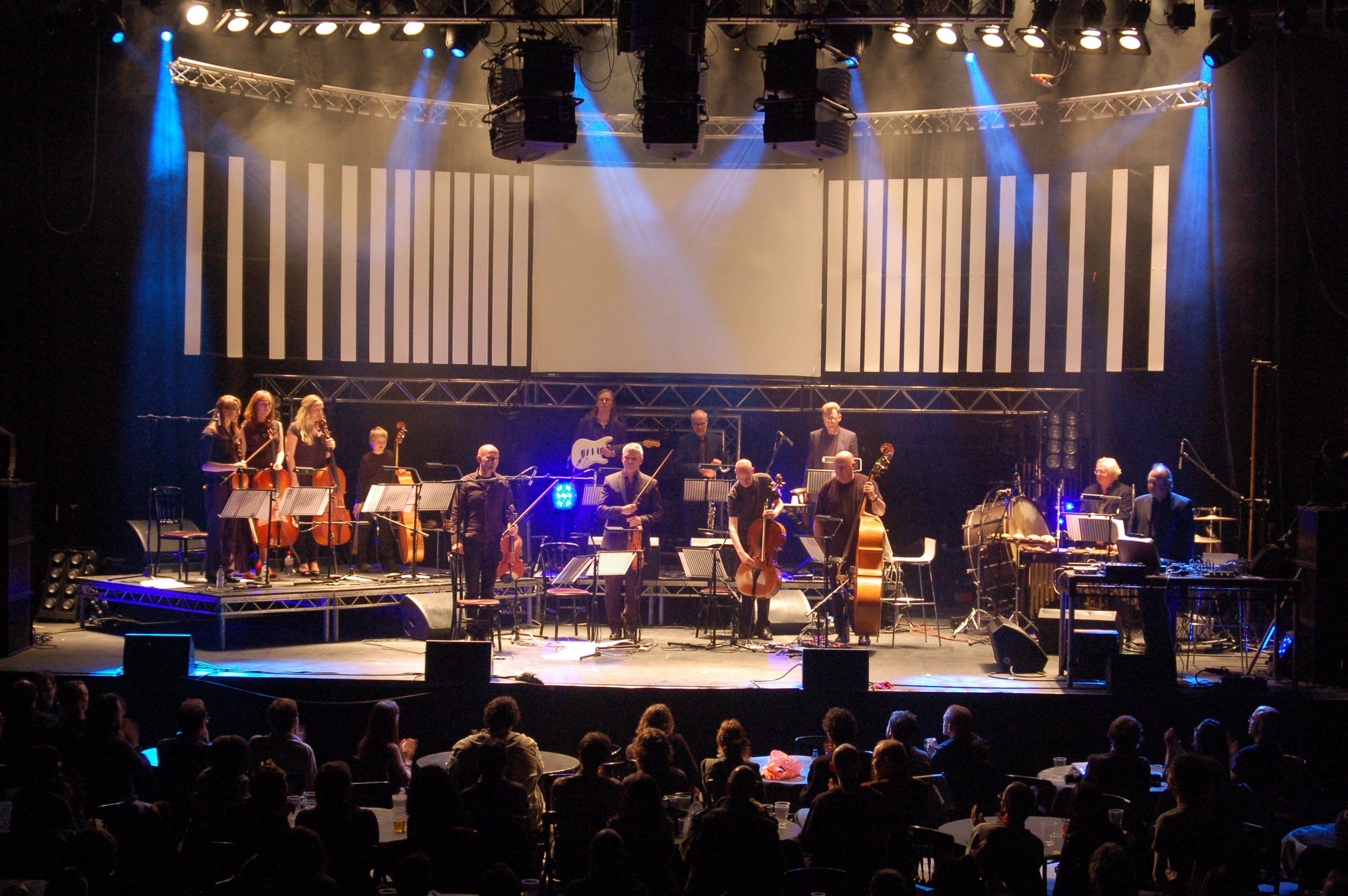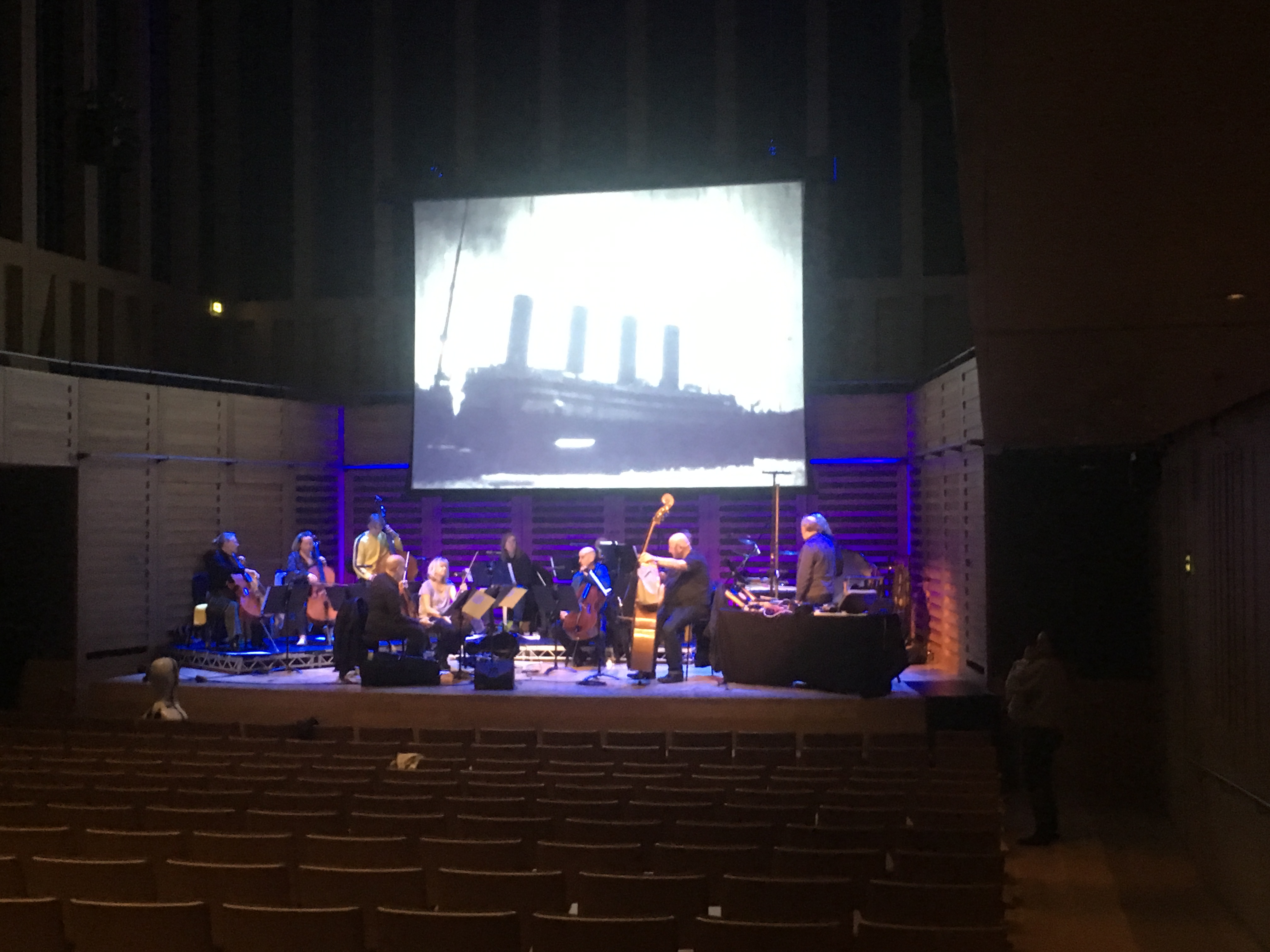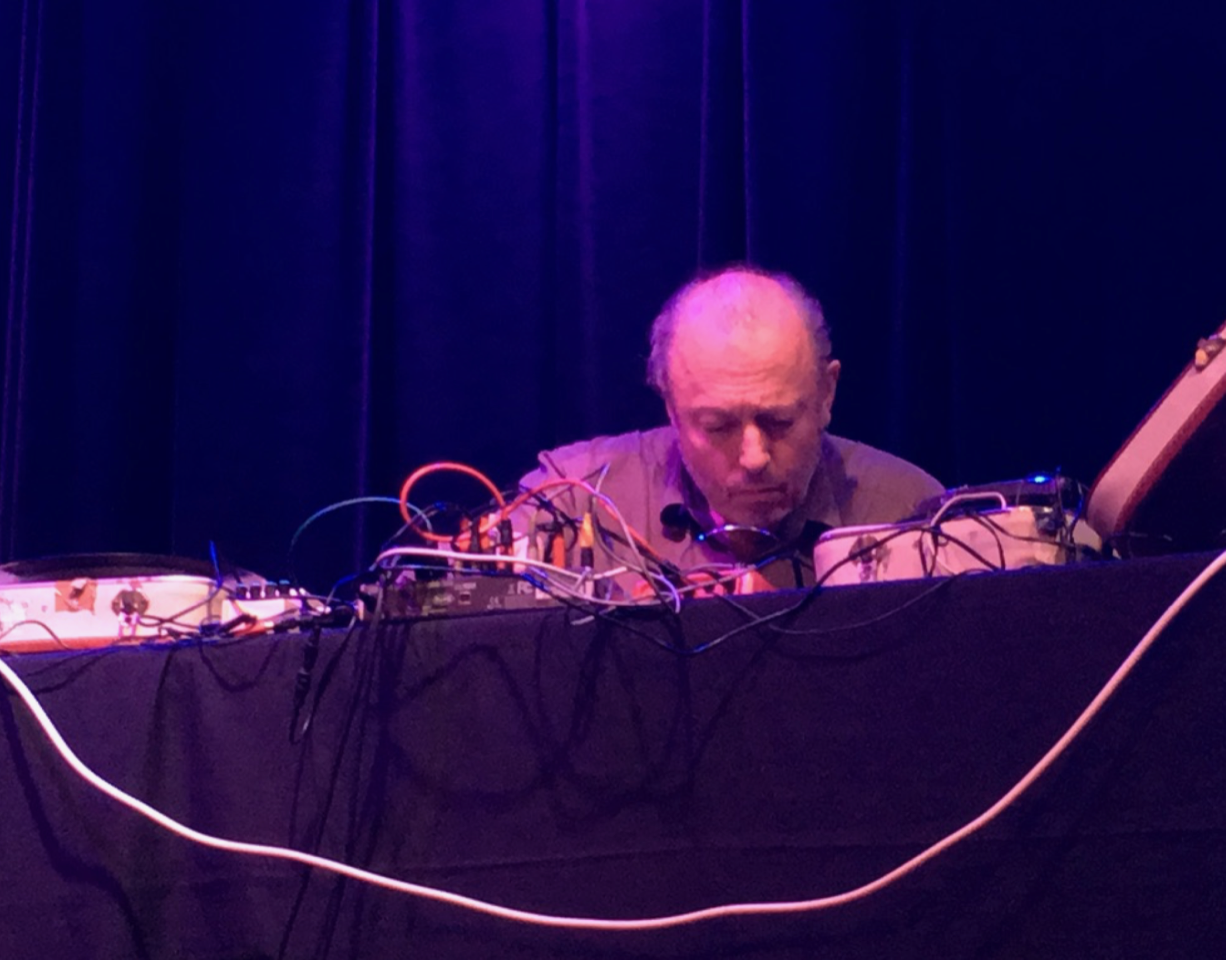Philip Jeck died peacefully on Friday, March 25th. He was a good friend, an unclassifiable artist who produced the most poetic music imaginable (and yet to be imagined). He was without doubt a genius and a very lovely man.
We first worked together in October 2005 on a performance of The Sinking of the Titanic, produced by Touch, with the Italian group Alter Ego, in the Teatro Malibran, Venice – and Touch issued a live recording on CD. Alter Ego’s instrumentation was different from other versions of the piece (the usual string ensemble was replaced with one that included Manuel Zurria’s bass flute for example), but the most radical difference was the inclusion of Philip’s improvisation using a variety of antique turntables. The performance started with an extended prologue by Philip that led into the opening hymn variations. As I waited to play my first notes, I listened intently to what Philip was doing – to the waves of unidentifiable sound that emerged mysteriously. There were moments where curious harmonies appeared, and I heard at one point a short sequence of F minor chords that I noted particularly, and they inspired the opening bars of a choral piece that I was about to write, Silva Caledonia, for the Estonian National Men’s Choir shortly afterwards.
As the two English musicians in the otherwise entirely Italian group we naturally gravitated towards each other and spent time together. He was by nature a shy person, but who gradually opened up as time passed. I remember particularly us having a drink together after the last performance, in the Campo San Bartolomeo, around the corner from the theatre, and near the Rialto bridge. It was probably the first time we had been together without the others, and we had the chance to speak together in a relaxed way and at some length.
In the summer of 2006, I was commissioned to write a new piece as part of a weekend dedicated to Steve Reich at the Barbican, in his 70th year. Most of the programme had been established, and the idea of my involvement came quite late in the planning. As a result, I was asked if whatever I wrote could involve musicians who were already booked for the short festival, and I agreed. I decided to set poetry by the Scottish poet George Bruce (who had been a close friend of Edwin Morgan, whose poems I had used for the Estonian choral pieces). Part of the choice took care of itself as the four singers of Paul Hillier’s Theatre of Voices, who I already knew, were there. And I also chose the Kronos Quartet, who I knew personally through my friendship with John Adams, but I had never worked with them before. This made two nicely balanced quartets. However, the organisers also asked if I would consider using a DJ who was already involved with the weekend and, although I was not averse to the idea of an additional element, I had little interest in this work. However, I asked if I could have my own choice for this final element, and if Philip Jeck could be the “DJ” element. Although they knew little about Philip – the fact that he used turntables seemed to make him qualified for this role – they agreed.
I remember very clearly the first rehearsal. The singers and the quartet were already installed – the Kronos with their designer chairs and music stands – when Philip arrived. He was a startling contrast to them. He was unkempt, shirt outside his trousers, and carried a couple of battered brown suitcases containing his instruments. They looked on, astonished, as he took out boxes of electronics, cables, LPs, several 1950s vinyl record players – Dansette and Phillips auto-changers among them – and set everything on a table adjacent to the ensembles. But the moment he started playing, their jaws dropped in amazement at what emerged. My piece, The Stones of the Arch, sets two poems by George Bruce closely related in subject but separated by over thirty years. I asked Philip to start with a prologue before the quartet started playing, to play through the instrumental interlude between the poems, and to overlap the ending. In addition, of course, he was free to play in any other part of the piece as he felt appropriate. The performance itself was quite magical, and George Bruce’s family had come down from Scotland for the occasion. As with his opening improvisation for Titanic in Venice, there were some astonishing moments. One that I still recall is the ending, where the strings slowly ascend through an implied C minor scale to rest on an ambiguous suspension, Philip’s subtle additions gave it a sense of resolution, counteracting with a hint of C major…
After that Philip started to perform The Sinking of the Titanic with my ensemble, which by then included all four of my children, starting at the Roundhouse in 2009. And then in 2012, through Touch, along with Forma, I planned a series of performances in what was the centenary year of the disaster itself. For this there was specially commissioned film material by Bill Morrison and Laurie Olander, with whom I’d worked on a version of Titanic in in 2008 which took place in the Union League of Philadelphia, in one of the large dining rooms which resembled the first-class dining room on the ship itself, and where the performance was followed by a dinner using the last menu from the ship itself…
Our centenary performances took place in Birmingham, London (Barbican), Cork, Prague and Paris and I issued a live recording on GB Records. We settled into a structure for the piece where Philip would play a prologue for around 12 minutes and the whole performance lasted around 75 minutes. There were two groups of strings: the main quartet of two violas, cello and bass; and a second one of my children – viola, two cellos and bass. A third group of four players was more dispersed: bass clarinet, tenor horn/keyboard, electric guitar and percussion. The sound was handled by Bob Burnell, who took over as my live sound engineer as Chris Ekers was working on the London Olympics… It was a format that worked well.
In Paris, the choreographer Carolyn Carlson came to see us when we played at the Theatre de la Ville and loved the performance, and especially what Philip was doing. She and I had worked together for many years and had performed at the Teatro Malibran, the place where I first met Philip. She wanted to do a new ballet with me, this time for the French National Ballet in Bordeaux. The piece was to be a full evening ballet called Pneuma, with orchestra but she had the idea to include Philip too but who, this time, would have a series of solo sections in between each of the orchestral scenes as well as a prologue and epilogue. It opened in March 2014 and was a big success and was revived in 2018. Philip also played with a touring version that used a recording of the orchestral music – he was indispensable… At the end of each performance a cluster of people would come to the orchestra pit just to see for themselves just what was going on in Philip’s corner. It was a bit like the way members of an audience at Merce Cunningham performances would come to the pit just see what Cage and David Tudor had been doing…
There was one very neat trick that he used in Bordeaux. As the dancers were taking their bows, he would play the music that he used for the prologue. Eventually he and I were both called to the stage to join them, but the music continued while he was up there to the bafflement of all – he had secretly automated his system…
We also did a version of Titanic for a dance performance in Helsinki in November 2015, choreographed by Liisa Pentii, for which only Philip, me and sound engineer Bob Burnell went from UK – the musicians were chiefly students from the Helsinki conservatoire. This was when I spent probably the longest time in Philip’s company. We were there for over a week and, in spite of looking for something different to eat after the performances, would invariably end up at the same place, just round the corner from the venue, and find ourselves eating the same thing each night…
The last time I saw him was when we did a GB ensemble performance of Titanic at Kings Place in December 2019, which celebrated 50 years since the composition of the piece. We had always planned to do more work together after the lockdown, but nothing had yet materialised.
And then I got the message from Mike Harding on Friday March 25th that he had passed away that day…
He was a supreme artist and a good friend. And I will miss him.
Carolyn Carlson wrote to me: How sad that Philip Jeck has left this world. He was a grand gentleman, so quiet and a beautiful soul. I so fondly remembered his set-up for Pneuma with admiration for his unusual mind of crazy inventions, and of course your masterpiece of the Titanic. Please send my regards and deep condolences to his wife, Mary. With my love and knowing he is in a beautiful place where I see a star shining brightly in the sky.
Gavin Bryars
Here is a link for the Touch recording of the Venice performance of The Sinking of the Titanic
https://philipjeck.bandcamp.com/album/the-sinking-of-the-titanic-1969





